How to generate more revenue faster
Maybe stop using pictures of older women to suggest technical incompetence
Hello Gobbledeers,
How’s it going? Thanks for indulging me the week off. It gave me plenty of time to write a good one this week. Obviously, I didn’t use the time to write a good one, but I appreciated knowing I had the time.
This week:
Why prospects don’t buy from you and what to do about it.
Generating more revenue, faster.
Stop using pictures of older women as a shorthand for technical incompetence.
And I have had SO many great conversations with readers who’ve reached out to chat for 30 minutes about marketing stuff - I’ve learned so much. Here’s my Calendly link - 100% satisfaction guaranteed. (I don’t know what that means.)
Why Buyers Don’t Buy
We talk here sometimes about how one of the reasons there’s often (always?) tension between marketing and sales teams is that neither team really understands what the other team does for a living.
And if you’re a marketing person who wants to learn more about how sales works, there’s no shortage of books, podcasts, YouTube videos, seminars in the Schaumburg Hilton Garden Inn, and guys you meet in an airport lounge who are happy to share their secrets for CLOSING MORE DEALS!
(The secret? Crushin’ it! Also - and obviously - grinding, preferably after rising.)
For myself, most of those just make me sad and more confused.
Which is why I wanted to make a recommendation: this episode of Lenny’s Podcast where he interviews Matt Dixon, who wrote the book The Challenger Sale was really enlightening. Dixon is there to plug a new book, but he shares a few ideas that I’ve been thinking about:
Most deals are lost because the buyer makes no decision at all (ie, you get ghosted - which I’ve definitely done to salespeople and I’m sorry.).
Salespeople often use FOMO (“your competitor is already using us and getting 14% better results!”) to get a deal closed, but this tactic actually causes people not to make a decision about buying the product.
Fear of buying something and then getting blamed if something goes wrong is the biggest reason there’s no decision.
The best thing a salesperson can do is to confidently make a recommendation about the best product/plan/configuration/bundle for the buyer, rather than providing a wide range of options from which the buyer must select.
This is very helpful information for a salesperson, but it’s very, very helpful information for marketing.
Think about your pricing page. I’ll guess that your page has 3 or 4 different choices on it - maybe there’s “Starter” “Plus” “Pro” and “Enterprise” and each plan has an increasing number of features, and as a buyer I’m going to be paralyzed by which would be right for me.
My recommendation is to be explicit about who each plan is for - You can go with “Starter - perfect for companies with under $1 million in revenue” (or whatever). YOU have thought a lot about how to package the product; your buyer has not thought about it at all. What’s clear to you about the packaging is not clear to the buyer. What IS clear to the buyer is that the buyer has XX revenue, or XX users, or XX channels, or they send XX messages.
The buyer thinks about their own characteristics - they don’t think about the characteristics of your product. They want YOU to suggest the right product based on THEIR characteristics.
In other words, make a confident recommendation.
On a website, it obviously will not be exact. The salesperson will do their own due diligence so they can make a more confident recommendation.
But marketing needs to be as clear as possible about what type of buyer will be most interested in each aspect of the product they’re talking about. Take a stand. Be confident.
That podcast is definitely worth 45 minutes of your time (and I’m not someone who usually listens to business podcasts, as they get in the way of me listening to Veep re-watch podcasts).
Hm…How Can I Generate More Revenue, Faster?
A couple weeks ago I shared how companies that sell sales prospecting software seemingly all describe the benefit of their product using the same language: “take the guesswork out of prospecting.”
That’s kinda odd, no? In what other industry would all of the competitors describe their benefits using the exact same copy? Like if Coke, Pepsi, 7up, Dr. Pepper, RC Cola (?), Sprite, and Mountain Dew all ran ads that said, “Remove ‘thirsty’ from your vocabulary.” (Note: not an actual campaign.)
But this has become a bit of a curse for me, because once I started looking at the websites of multiple companies selling the same kind of software, I noticed that they all say - LITERALLY - the same thing.
Not “sort of the same thing.” LITERALLY the same thing.
Whose fault is this? The marketers who allow this? The exec teams that don’t call it out? The sales teams who (I’m guessing) think that they have to say the same thing as a competitor or they won’t win a deal?
Why didn’t anybody at any of these THIRTEEN sales tech companies below say, “please don’t use the phrase ‘generate more revenue faster’ because all of our competitors say it?”
On a plus note, if I need to generate more revenue faster I have some options.
Happy Father’s Day
(Thanks to reader Jesse H.)
Be Careful With Showing Which People, Exactly, Are Idiots
I’m a little concerned we’re in the midst of a stupid advertising trend.
Longtime readers may remember a few months back when we talked about this ad:
LinkedIn was saying that if you’re an older woman (“your mom”), you’re too stupid to sell software. Brilliant creative, dipshits.
Then, reader Carl L. was kind enough to send me this enlightened piece of creative from security tech company Mimecast (from a newspaper!):
So, here’s the thing:
I get where they’re going with this. And I get where LinkedIn was going with their creative.
But it also shows why we generally say that the “enemy” in a marketing strategy should be a concept - having the “enemy” be represented by an actual person is incredibly tricky to pull off.
In the Mimecast ad, I keep thinking, “If Debbie is such a moron, why don’t they just fire her?”
(Also, why is the word “executive” abbreviated as “exec.” in the ad?)
And now the message of the ad is - Protect your company from the old tech-ignorant women who work there.
Which - I mean, maybe you DO have to do that? I don’t know.
As always, thank you for reading to the end. I mentioned my Calendly link up at the top, so here I’ll mention that in case you weren’t aware, I help companies improve their messaging by running a 2-day workshop that will completely transform how you talk about your product. We should chat about it - I’m at jared@sagelett.com or set up time here.



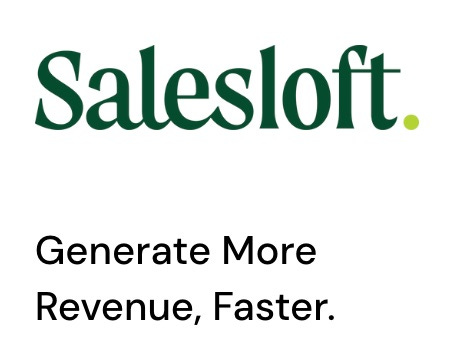


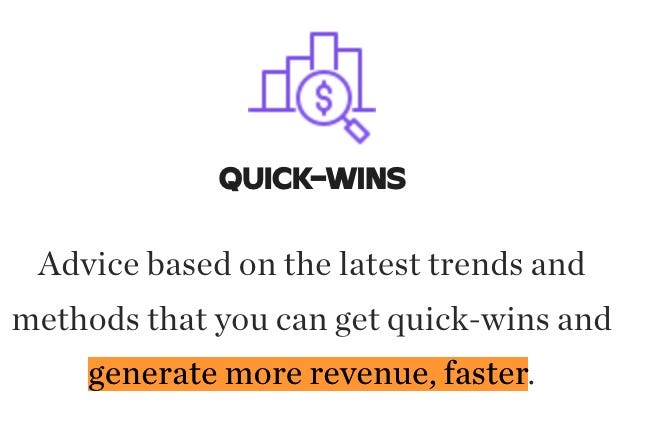

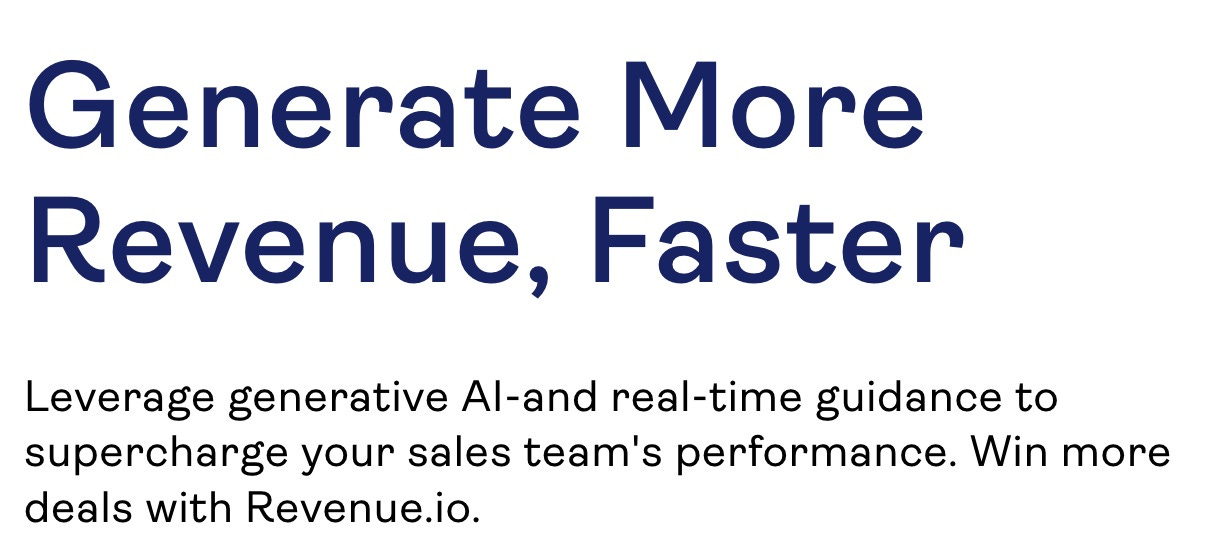






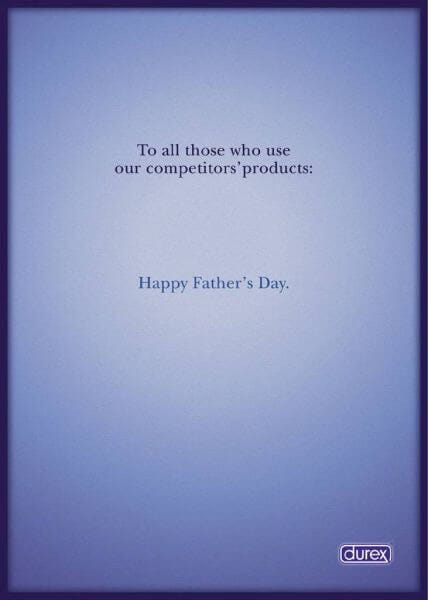
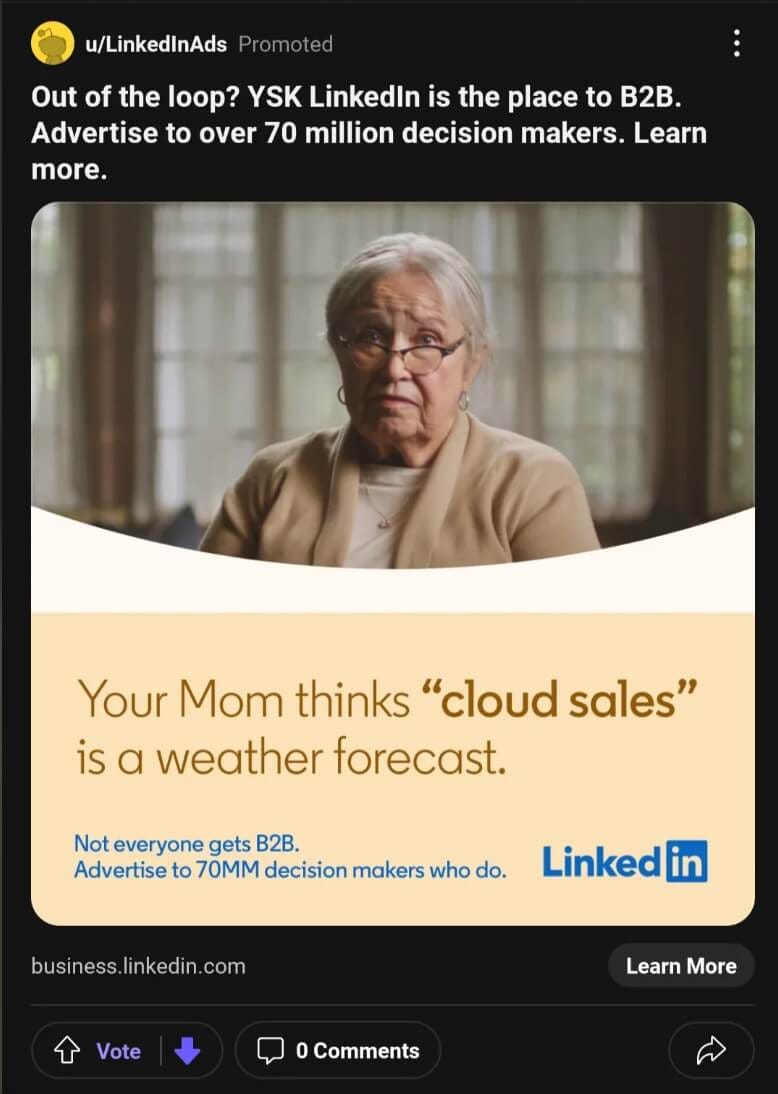
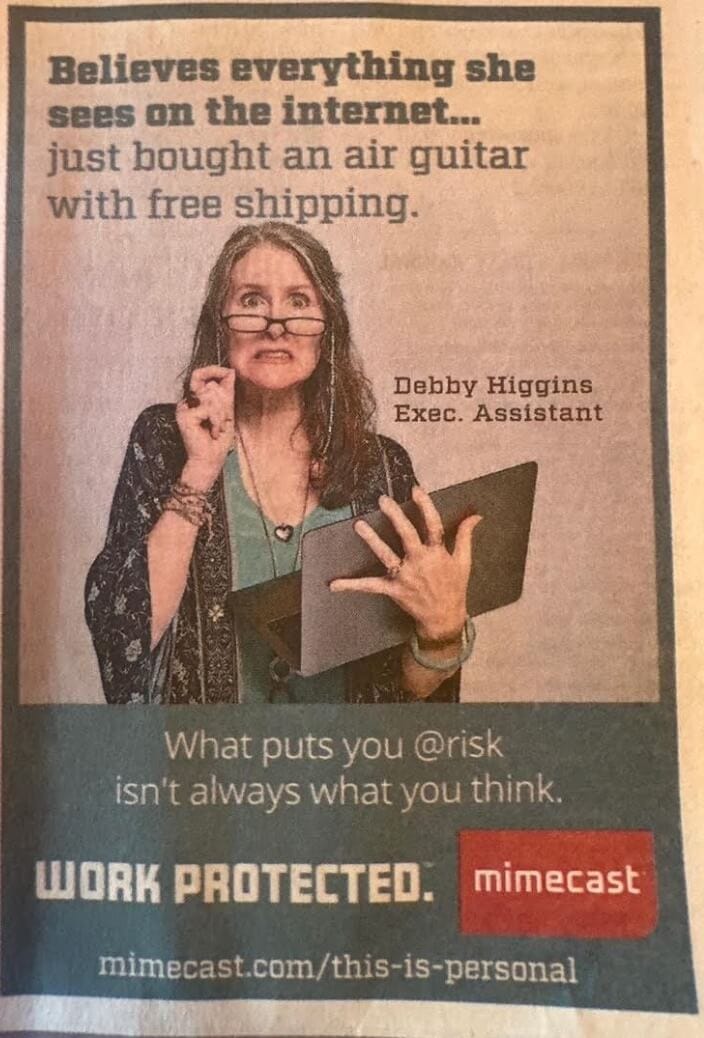
If twelve of your competitors advertise that they help you generate more revenue faster, don't you have to say that too?